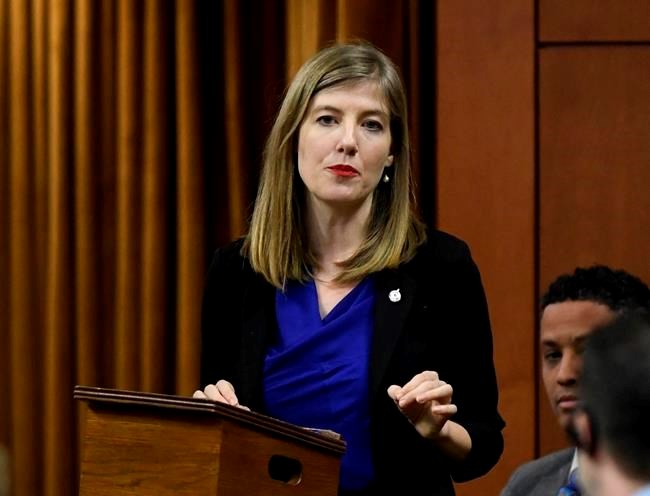OTTAWA — Morrell Andrews fought in court to control the use of her own name last year when she hoped to speak publicly about her experience with sexual assault.
She won that fight. But she's hoping nobody ever has to wage the same battle again.
Andrews is calling on the federal government to update laws around publication bans to better support victims who want to come forward and tell their stories.
In her own case, she said, theCrown prosecutor and judge did not ask her if she wanted to keep her name private, and she wasn't made aware of a publication ban until the offender pleaded guilty and was being sentenced.
"That's when I found out that someone had decided for me that I should not have my identity published and would not be allowed to self-identify and talk about my experience," she said.
Andrews said there's "a million reasons" why someone would opt out of a publication ban. "And the women I speak with and work with have many, many reasons, but chief among them is to advocate for others and to fix a system that has hurt us all in similar ways."
With politicians now taking up the issue in Ottawa, Andrews said she's optimistic that her message is being heard and that there is cross-party support for change.
NDP MP Laurel Collins recently introduced a parliamentary petition calling for complainants in sexual assault cases to be given a choice on whether or not the court bans the publication of their names or identifying details.
"It's just so essential that survivors have a say over what information they choose to share, and with whom," said Collins.
A report by a parliamentary committee released earlier this month said judges almost always impose publication bans to protect the identity of complainants in sexual assaults, and acknowledged growing calls for victims to be consulted first.
The committee recommended that the government change the Criminal Code to allow victims of sexual crimes to opt out of the publication bans if they wish.
Collins said the bans remain an "incredibly important tool for survivors to protect their identity" and they should remain available.
"But so long as they are consulted first, survivors should always have the choice," she said.
Advocates say they are hopeful that a change could come in the new year after Justice Minister David Lametti signalled earlier this month that the Liberal government would be open to amending the law.
"It is a discrete and relatively straightforward issue, and there seems to be support gaining traction," said Roxana Parsa, a staff lawyer with the Women's Legal Education and Action Fund. "So we are feeling positive."
Parsa said publication bans serve a purpose but "it's really hard to have a one-size-fits-all approach."
"A lot of survivors feel that this is really just a retraumatizing event, as it strips them of the power to speak about their own situation and to use their own voice," she said. "The most important thing, we think, is the issue of choice and informed consent around publication bans, and that there needs to be more of a survivor-centred approach to addressing the issue."
Andrews said cultural and societal attitudes towards sexual assault and gender-based violence have changed since publication bans were first widely used.
"There's an understanding now that some people find it really empowering and important to speak out, because it contributes to their healing," she said.
This report by The Canadian Press was first published Dec. 19, 2022.
David Fraser, The Canadian Press




